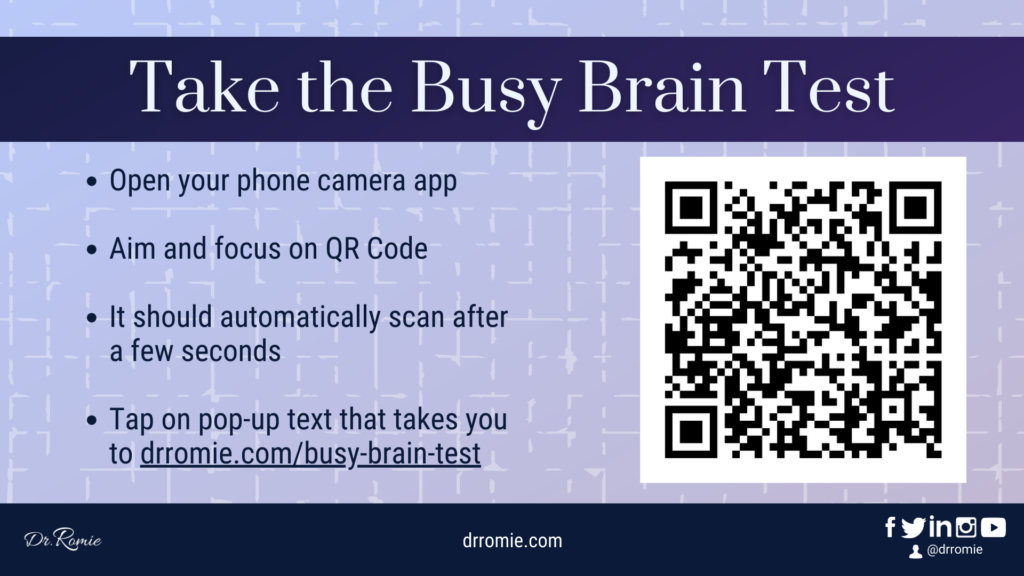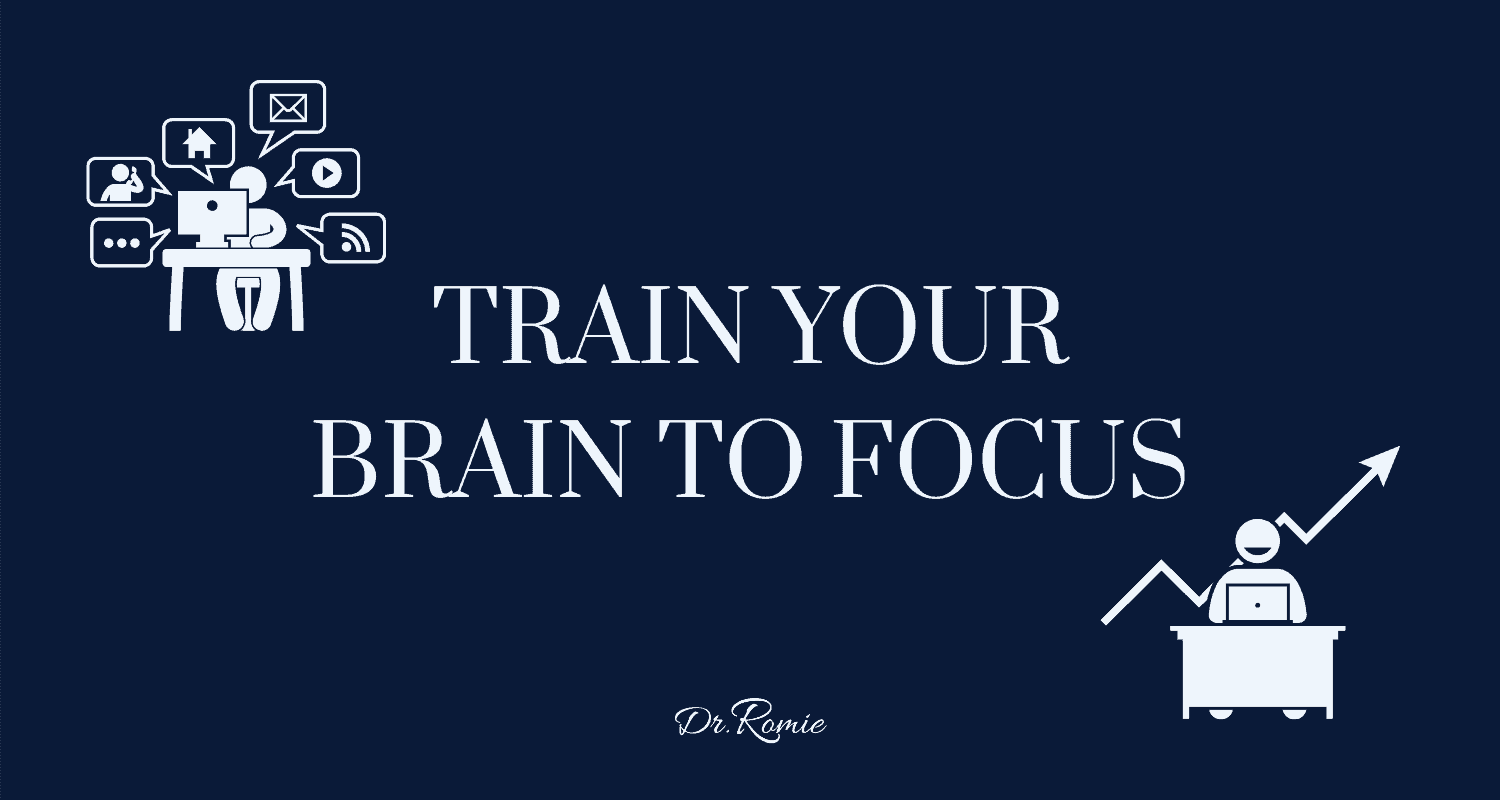Can you train your Busy Brain to focus, even if you trying to work from home through multiple distractions?
Multitasking Causes a Busy Brain
Or does a Busy Brain cause us to poorly multitask?
As I dive deeper into the research for a Busy Brain Cure, one thing is clear. It is difficult to break the cycle of a Busy Brain and a Busy Brain leads to difficulty focusing. Difficulty focusing leads to non-productive multitasking. Multitasking fuels a Busy Brain. We start all over again. (Yes, I am as exhausted typing that paragraph as your eyes are reading through the multitasking busy brain loop)
Multitasking was a trend to put on a resume in the 1990s when Jennifer Anniston was sporting “The Rachel.” Even though Jennifer was recently photographed bringing back that infamous hairstyle, we need not resuscitate the tired multitasking trend.
Between advances in brain science research and productivity tools in the early 2000s, one fact became clear. Productivity and multitasking could not coexist simultaneously. Productivity damages not only your career but also your brain.
We’ve had this discussion before: Multitasking is bad for business and bad for your brain.
Too Many Browser Windows Open in My Brain
Fast forward to 2021, and the global workforce is either working from home or at the frontlines. There is a consensus that many browser windows open in front of our eyes and brains. We may be switching between devices and channel types, known as “media multitasking.”
While some might assume that frequently shifting your attention between different information streams is good brain training for improving memory and attention, studies have found the opposite to be true. Even people who are considered heavy multitaskers are not very good at multitasking. In one study, Stanford University researcher Clifford Nass found that people who were deemed to be heavy multitaskers were worse at sorting out relevant information from irrelevant details.
In our new reality, we have increased both screen time and the number of screens in front of our brains. What can the brain science of mindfulness teach us in order to
Mindfulness to Boost Your Focus Through a State of Flow
Can you flow into focus? When was the last time you felt in a state of flow (outside of a yoga class?)
A state of flow in our brains is when we are consciously focused on one task without distractions. In a state of flow, your mind experiences a present-centered awareness; you feel not only focused but creative and as if time has no limits. While musicians and artists come to mind, this state of flow can is experienced by repeating any one task repeatedly that requires attention, such as knitting, raking leaves, driving down the highway.
Mindfulness and meditation practices help to retrain our brains into a state of focus and flow. By starting any task that requires focus with a 3-5 minute controlled breathing exercise, we can hit the pause button on stress hormones that cause attention-deficit type symptoms. A daily meditation practice of 20 minutes daily rewires the brain to focus on being without distraction or losing emotional control.
Train Your Busy Brain to Focus
Do you have difficulty focusing? You are not alone. When stress levels are high in your brain, one of the symptoms of a “Busy Brain” is difficulty focusing on one task for over 30 seconds. What if you could have 60 consecutive minutes or spread throughout the day without interruption?
Try it.
- Pick one task that requires your focus. Start by picking the item on your to-do list that feels easiest to accomplish.
- Shut down all unnecessary browser windows, including email inboxes, notifications on your computer and mobile phone. Pick one device to use to finish the task.
- Set a timer for 20 minutes, and focus on finishing as much of the task as possible.
- If you finish before the 20 minutes is over, check the item off your list and take a break (and reward yourself).
- If you do not finish the task, find another 20-minute block to use as focus time.
Build a Focused Team
Screen on or screen off? What if we put an end to the debate by suggesting we minimize virtual meetings? Instead, prioritize time for everyone to focus. If you are back in the office or working at the front lines, try to create the same focus time blocks for your entire team.
When working from home, give every team member the ability to block of focus do-not-disturb-time on their calendars.
- Could you pick one hour during the daytime that no one schedules a team meeting?
- Encourage everyone on your team to also pick one task to focus on for 20 minutes at a time.
- Celebrate small wins with your team, and create a culture of Focus Power Hours.

Is a Busy Brain robbing you of your ability to focus? Click here to take this free 4-minute test to see if you have a brainSTRAIN reducing your productivity.
Resources:
- Cognitive Control in Multitaskers: https://www.pnas.org/content/106/37/15583
- Multitasking Damages Your Brain and Career: https://www.forbes.com/sites/travisbradberry/2014/10/08/multitasking-damages-your-brain-and-career-new-studies-suggest/?sh=7dbc3d7456ee
- Multiple Costs of Multitasking: https://www.ncbi.nlm.nih.gov/pmc/articles/PMC7075496/

